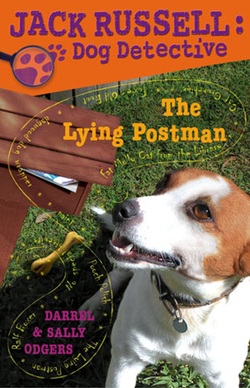Paul Whybrow
Full Member
I came across this article on the Electric Literature site, about how authors have treated animals in their work.
13 Literary Takes on the Lives of Animals – Electric Literature
I'm currently in the early stages of writing a novella about an American Civil War veteran who's travelling from the Great Smoky Mountains on his Morgan stallion, with a mustang, two mules and a mongrel dog he's recently acquired. Suffering from shell-shock, (which is now called PTSD), he's been hiding out in the wilderness for two years since the war ended, his main companion the stallion he rode in the conflict. My protagonist is better at relating to animals, wild and domesticated, than people.
I've previously included dogs, cats and budgerigars, poisonous frogs and snakes in short stories, novellas and novels. The forensic pathologist in my Cornish Detective series lives with an African Grey parrot, and she brings him to work. My detective protagonist is a country boy at heart, keenly observant of wildlife around him, and had a dangerous encounter with the legendary Beast of Bodmin Moor, which turned out to be an escaped mountain lion. He lives with a battle-scarred silver tabby, rescued from a remote farm where its owner died. He's named it Bastet, after the Egyptian deity who represented a protector of the home: cat and detective share attributes.
It's always struck me as odd, how many authors completely ignore animals in the stories they tell. I guess it's no different from having characters than never eat anything, who avoid watching television, reading or listening to music and whose cars never need refuelling, but when an author says that his character "looked out of the window and saw some black birds flying past" then he's betraying his own ignorance and lack of interest, for most people can tell the difference between a starling and a crow, so why not say?
Certainly, there's an argument that in writing, there shouldn't be extraneous information that doesn't further the plot, but incidental details about animals and how one's fictional characters react to them, do much to flesh out who they are. Think how differently a reader would interpret the personalities of two men, one of whom dotes on a poodle spoiling it with gourmet food, the other who lives with twenty snakes that he feeds live mice to....
Do any of you include animals in your stories, and what are they? And, what are their names?

(Illustration by Manuel Larino, for an article in Paste magazine, about Haruki Murakami, who often includes cats in his novels)
13 Literary Takes on the Lives of Animals – Electric Literature
I'm currently in the early stages of writing a novella about an American Civil War veteran who's travelling from the Great Smoky Mountains on his Morgan stallion, with a mustang, two mules and a mongrel dog he's recently acquired. Suffering from shell-shock, (which is now called PTSD), he's been hiding out in the wilderness for two years since the war ended, his main companion the stallion he rode in the conflict. My protagonist is better at relating to animals, wild and domesticated, than people.
I've previously included dogs, cats and budgerigars, poisonous frogs and snakes in short stories, novellas and novels. The forensic pathologist in my Cornish Detective series lives with an African Grey parrot, and she brings him to work. My detective protagonist is a country boy at heart, keenly observant of wildlife around him, and had a dangerous encounter with the legendary Beast of Bodmin Moor, which turned out to be an escaped mountain lion. He lives with a battle-scarred silver tabby, rescued from a remote farm where its owner died. He's named it Bastet, after the Egyptian deity who represented a protector of the home: cat and detective share attributes.
It's always struck me as odd, how many authors completely ignore animals in the stories they tell. I guess it's no different from having characters than never eat anything, who avoid watching television, reading or listening to music and whose cars never need refuelling, but when an author says that his character "looked out of the window and saw some black birds flying past" then he's betraying his own ignorance and lack of interest, for most people can tell the difference between a starling and a crow, so why not say?
Certainly, there's an argument that in writing, there shouldn't be extraneous information that doesn't further the plot, but incidental details about animals and how one's fictional characters react to them, do much to flesh out who they are. Think how differently a reader would interpret the personalities of two men, one of whom dotes on a poodle spoiling it with gourmet food, the other who lives with twenty snakes that he feeds live mice to....
Do any of you include animals in your stories, and what are they? And, what are their names?

(Illustration by Manuel Larino, for an article in Paste magazine, about Haruki Murakami, who often includes cats in his novels)

